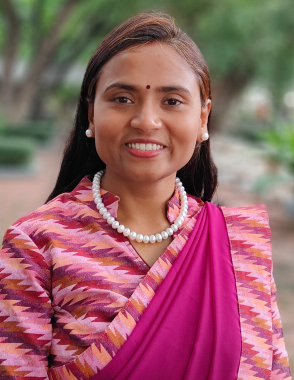For Soni, the SAR100 2.0 couldn’t have come at a better time. The program, implemented under SARIC, brought together 110 women engineers from 7 South Asian
countries – Bhutan, Bangladesh, India, Maldives, Nepal, Pakistan and Sri Lanka. The course was a unique 6- month training program which dealt with various issues
in the energy sector, emerging technologies to combat those issues and emphasized women’s growing role and leadership in this new era of energy transition.
This SARIC-powered network of 110 women energy professionals is expected to create new avenues of knowledge sharing, mentorship and dialogue within the region.
Soni credits her growing confidence and presentation abilities to SAR100 2.0; she believes that the course gave a platform to use her voice through the training
modules, class presentations and group projects. The course also helped her in connecting her work to the wider South Asian energy sector and the challenges that
women face in that space.
By interacting with other women participants during our assignments and the capstone week, I felt that together, we can learn more,
share more knowledge between ourselves, and more importantly, spearhead rapid, but necessary changes in the sector.
Soni now envisions a bright future for the energy sector in the region after this training. SAR100 2.0’s module on women leadership and cross-border
energy trade has given her more detailed and comprehensive insights about regional power cooperation, the possible pitfalls and their solutions.
I am most excited about negotiating and working with South Asian countries for cross border trading and to enhance Nepal’s economy
in the process. I look forward to a better and more secure energy future in South Asia.

